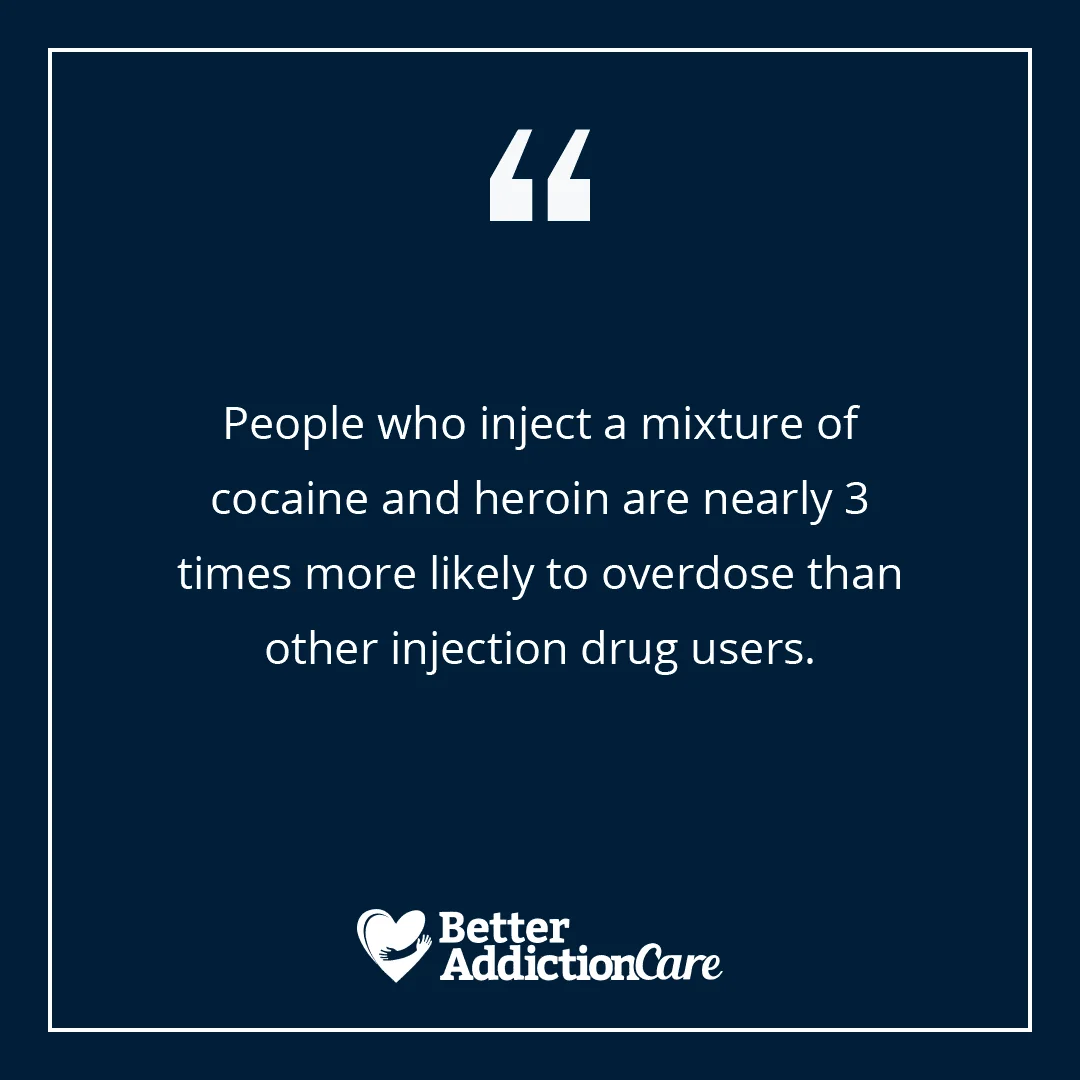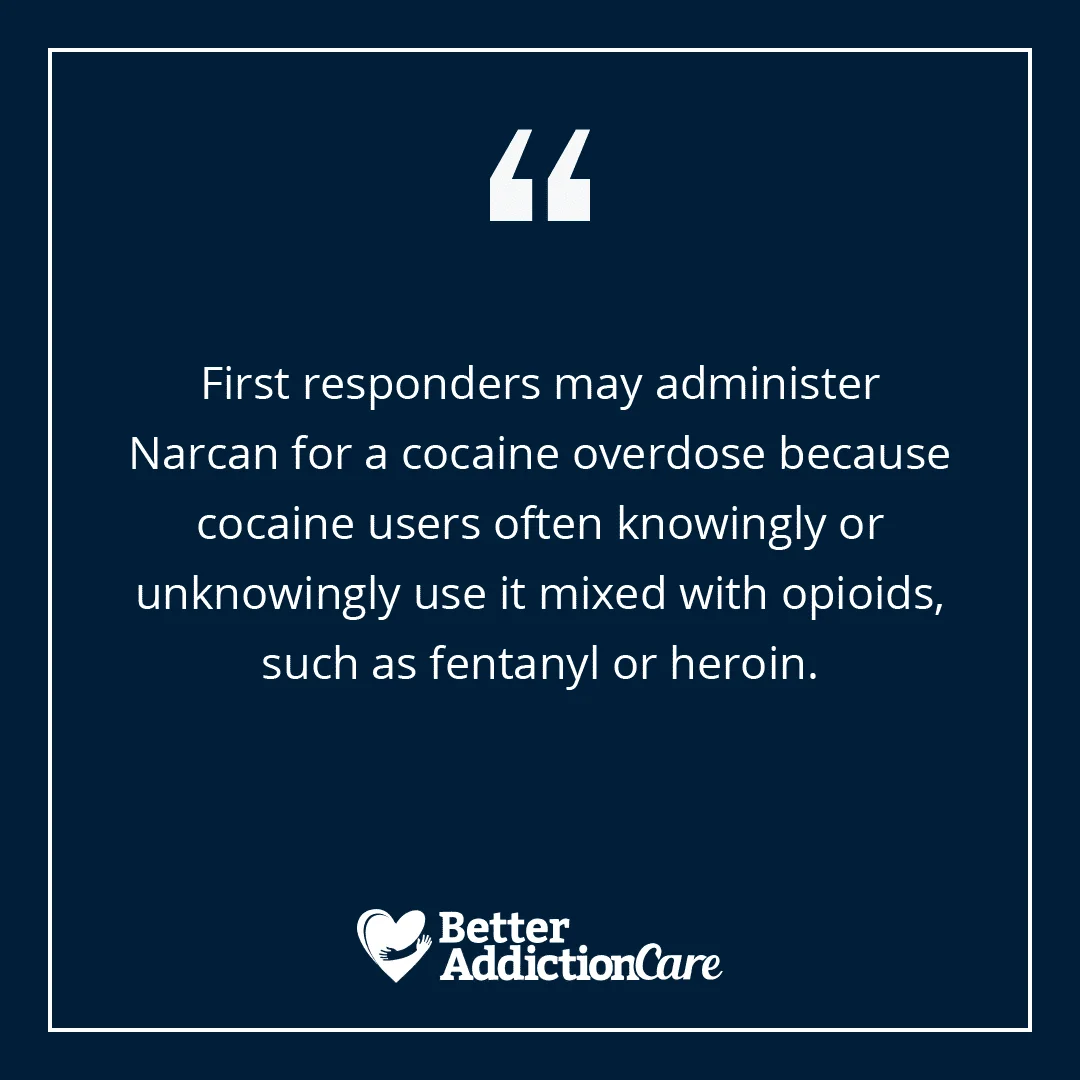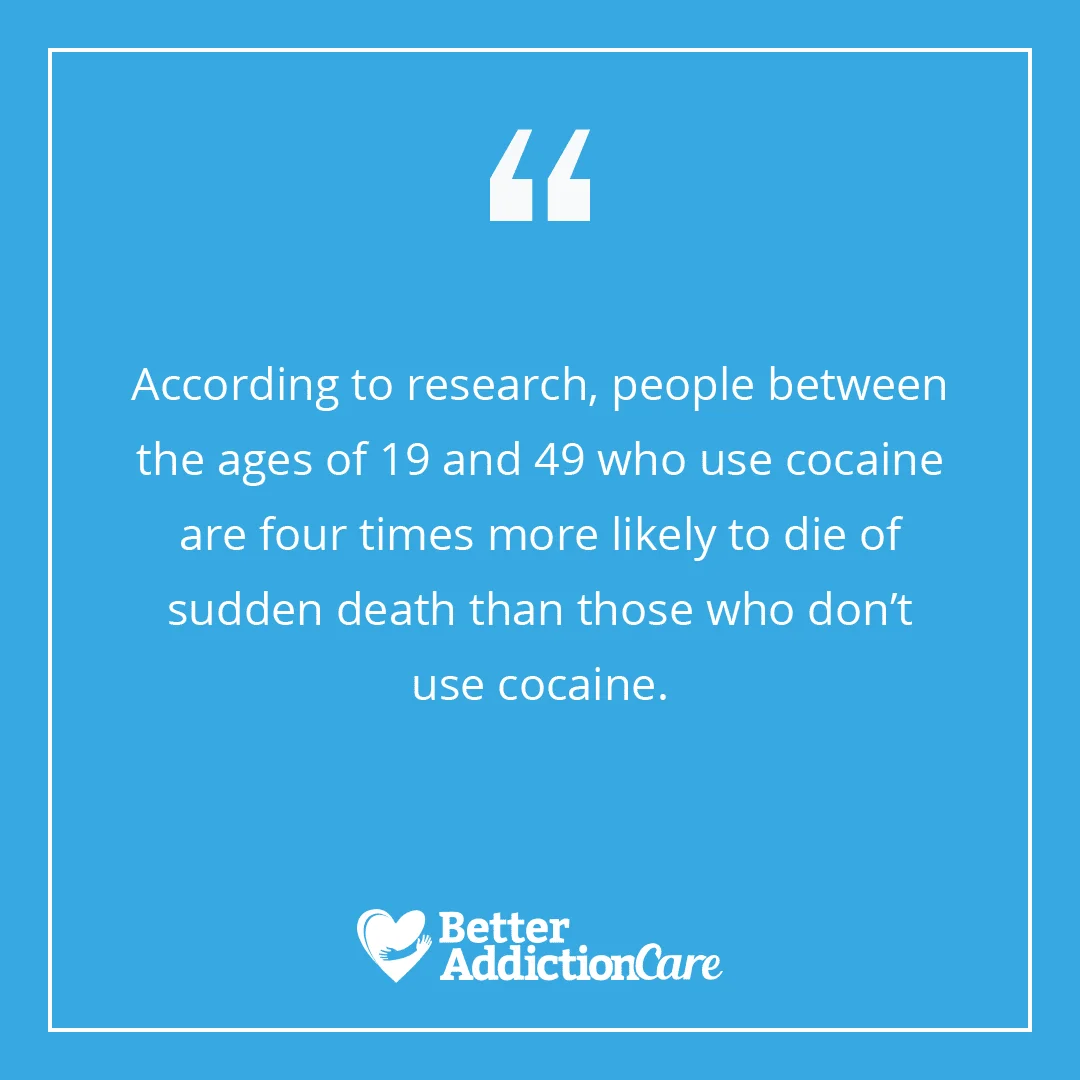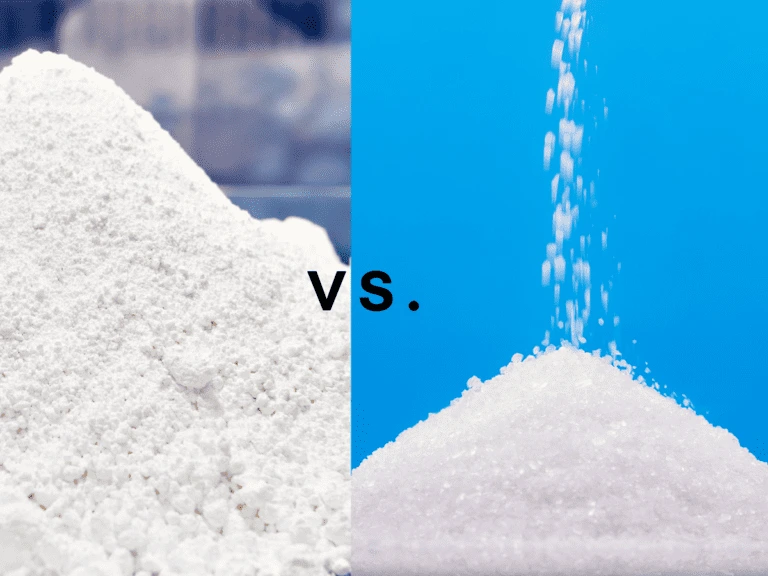Cocaine Overdose Signs, Symptoms, and Treatment
Cocaine is a powerful and addictive stimulant that increases the user’s heart rate, breathing rate, and brain activity. Using cocaine puts you at risk of experiencing adverse effects, such as stroke, heart attack, or seizures. For this reason, if you or someone you know abuses cocaine, you need to know the signs of cocaine overdose so you can get medical attention as soon as possible.

Signs of Cocaine Overdose
Cocaine is a white powder that speeds up your central nervous system function. It is snorted, rubbed onto the gums, or mixed with water and injected. Crack cocaine is a free base form of cocaine, and users smoke the drug in this form.
A cocaine overdose can occur regardless of how you use it, but the risk of overdose and death increases when you inject this stimulant drug. The risk of cocaine overdose also increases when used with other drugs. For example, a study found that injection drug users (IDUs) who injected a mixture of cocaine and heroin were 2.6 times more likely to overdose compared to other IDUs.
Physical symptoms and signs of cocaine overdose include:
- Nausea and vomiting
- Tremors
- Chest pains
- Seizures
- Irregular breathing
- Cardiac arrhythmias
- Stroke
- Hyperthermia
- Brain hemorrhaging
Psychological symptoms of cocaine overdose include:
- Panic
- Extreme anxiety
- Agitation
- Rage
- Paranoia
- Delirium
- Hallucination
Although cocaine overdoses can be life-threatening, people can recover quickly or respond well to medical interventions. This is because cocaine has a short half-life—between 40 and 45 minutes—which means the effects are short-lived and the body excretes it quickly.
How Cocaine Overdose Differs From Other Substances
Unlike an overdose on central nervous system (CNS) depressants like opioids, benzodiazepines, barbiturates, and alcohol, a cocaine overdose isn’t caused by using too much. While using too much of a CNS depressant leads to slowed or stopped breathing, which causes the overdose, dangerous effects can occur with even a small amount of cocaine.
The most dangerous thing about cocaine abuse is that it’s unpredictable. You could experience an overdose the first or twentieth time you use it, regardless of the dose—this is known as sudden death. According to research, people between the ages of 19 and 49 who use cocaine are four times more likely to die of sudden death than those who don’t use cocaine.

How to Treat Cocaine Overdose
If you suspect a person is overdosing on cocaine, call 911 immediately. While waiting for first responders to arrive, ensure the person overdosing is in a safe location and that they are in no danger of causing injury to themselves, especially from a seizure.
Since seizures may occur during cocaine overdose, ensure the patient remains on their side. That way, if they should vomit, they do not aspirate (breathe into their lungs) the vomit.
If the person is not breathing, you may need to perform CPR. If you have not been trained to administer CPR, let the 911 dispatcher know and they will be able to walk you through the steps.
Once first responders arrive, get out of the way so they can treat the patient. Try to remain as calm as possible. The emergency medical team may ask you critical questions, and they will need you to answer them.
Since cocaine overdose often leads to heart attack or stroke, first responders will treat those conditions first. They will then transport the patient to a medical facility or hospital for further treatment and observation.
Naloxone for Cocaine Overdose
Naloxone, better known as Narcan, is a medication used to reverse the effects of an opioid overdose. Many medical professionals and first responders carry Narcan with them while on duty.
Doctors will also prescribe this medication for known opioid users and their family members. In many states, you can purchase Narcan over the counter (OTC).

Although Narcan only works in opioid-related overdoses, the first responders may administer it in the event of a cocaine overdose because those who use cocaine often knowingly or unknowingly use it mixed with opioids, such as fentanyl or heroin. They may unknowingly use an opioid because many dealers cut their cocaine with cheap opioids to increase profits. There is no risk in administering Narcan to someone who has overdosed on cocaine—it won’t have any effect on them if it turns out they haven’t used an opioid.
Transitioning to an Addiction Treatment Program
Overdosing on cocaine could be an indicator that you are struggling with a cocaine addiction. There are many cocaine rehabs out available that can help you end the cycle of cocaine abuse and live a life of sobriety.
In a cocaine addiction treatment program, you will learn valuable skills to help you quit using cocaine and avoid relapse, such as:
- Healthy coping skills
- Sober social skills
- Relapse prevention strategies
- Drug-refusal tactics
- Stress management
- Anger management
- Emotional regulation skills
The two main treatment settings for cocaine rehab include inpatient and outpatient treatment. Inpatient involves living at the facility for the duration of the program. It’s the more intensive option offering structured care and around-the-clock treatment. Inpatient cocaine rehab may be best for you if you:
- Have a severe cocaine addiction
- Have a polysubstance addiction
- Have a co-occurring mental health disorder (dual diagnosis)
- Have previously dropped out of outpatient treatment
- Have a chaotic and drug-using home environment
Conversely, outpatient treatment involves living at home while attending individual or group therapy at a treatment center. Outpatient cocaine treatment may be beneficial for you if you:
- Have a mild cocaine addiction
- Have a sober support system
- Have reliable transportation
- Want to continue working while recovering from cocaine addiction
- Want a more affordable treatment option
If you’re looking for a quality cocaine rehab program, call our 24/7 helpline at (800) 429-7690. One of our treatment support specialists will help you find a program near you.

Common Questions About Cocaine Overdose Signs, Symptoms, and Treatment
Yes. People who abuse cocaine or mix it with other drugs or alcohol are susceptible to cardiac arrest and complete respiratory failure. Both may result in death without timely medical intervention.
Cocaine comes from coca leaves. It is pressed and ground into a white, crystalline powder. Crack is a form of cocaine that is mixed with agents like baking soda or ammonia and broken into small chunks called “rock.” Crack is even more addictive than cocaine, making it more dangerous than cocaine powder alone.
Cocaine activates the brain’s mesolimbic dopamine system, also known as its reward pathway. This circuit reinforces behaviors that are pleasurable so that you are more likely to repeat those behaviors in the future. It regulates motivation and emotions as well. Cocaine interferes with the brain’s communication throughout the mesolimbic dopamine system by blocking removal of dopamine at the synapse. This leads to an accumulation of dopamine, which causes the intense euphoria associate with a cocaine high.
Not everyone who uses cocaine has the same response to it—different biological factors affect how much someone likes the effects of cocaine. If someone tries cocaine once, they may never have a desire to use it again, whereas someone else may feel the urge to use it repeatedly.
If you’re addicted to cocaine and suddenly try to quit, you may experience unpleasant withdrawal symptoms, which include intense cocaine cravings. These cravings can make it difficult to abstain from cocaine use.
First, call 911 and seek medical attention immediately. While you wait for medical personnel to arrive, you can also:
- Reassure the person
- Loosen/remove tight or restrictive clothing
- Monitor their pulse
- Ask if they took anything with the cocaine (i.e., other drugs or alcohol)
You should also not offer them food or drink. Additionally, if you have Narcan and are confident the cocaine was mixed with an opioid, administer the opioid overdose medication. It will not hurt the person, even if cocaine is the only drug in their system.
If a seizure is occurring, place the person on their side. Most importantly, try to stay calm. It will aid in making more rational decisions.








